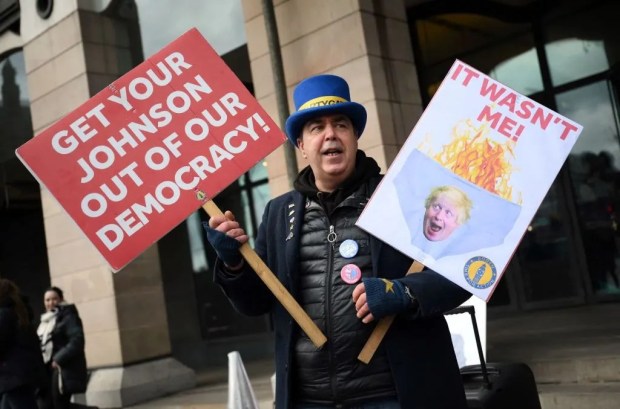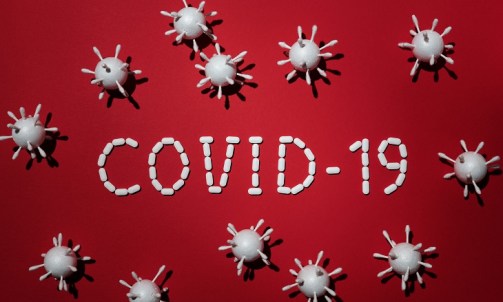If your genetic code survived the Pleistocene epoch, and prospered sufficiently that you find yourself reading this, I feel I ought to warn you that you are in great danger. For though the woolly marmoset and sabre-toothed sloth may be extinct, a new apex predator has emerged: human beings, or more specifically, other human beings.
In this latest evolutionary cycle, they have turned cannibalistic, traversing great swathes of the webosphere at high speed to feast on their favoured delicacy: you and your opinions.Far from becoming a more civilised species, we are in the midst of an epidemic of cancellations. We have no dinner dates to bail on, so we cancel each other instead. It can be for almost anything — a racist sneeze here, a transphobic pair of shoes there. Inevitably, these digital witch hunts lead to unclean individuals being forced into grovelling apologies in order to make their ordeals stop.
Last week it was the turn of Winston Marshall, a member of the band Mumford & Sons, to apologise — not for being a member of the band Mumford & Sons, but for endorsing a book by a journalist, Andy Ngo, on the group Antifa, which Antifa, taking exception to their portrayal in it, designated ‘fa’. After the digimob descended on him, Marshall took to Twitter to let the world know he was sorry for his opinions, and that he was stepping away from the band (alas, only temporarily).
Marshall followed a tried and tested apology playbook, honed before him by the likes of Justin Timberlake who grovelled over his treatment of Britney Spears, Hilaria Baldwin who expressed deep regret for hoodwinking us all about her Spanish roots and singer Jess Glynne who got in hot water for using the ‘T-slur’ and has dutifully deactivated her Instagram account.
Celebrities may have coined the apology rulebook but it’s also available to ordinary people in the event of a cancelling.
If you find yourself at the centre of the baying mob and in need of a quick apology, the first thing to remember is: Don’t panic. Of course, you really should panic — your life as you know it is over; your livelihood is no more, your friends will shun you, and your family has already packed up and moved in with your replacement. But you need to remember, the mob can smell fear, and displaying more will only tempt them to trawl deeper through your old Facebook posts for evidence of wayward thinking to gorge on.
The next step is to hire professionals. There is a burgeoning industry of image consultants, PRs and copywriters out there, many of them experts in the field of dealing with woke mobs on account of having previously been the journalists leading the pile ons, before their companies went broke or they were cancelled themselves for having said a bad word whilst rapping an Eminem song when they were 12. Remember Eminem? Not for much longer, he’s getting cancelled any day now — better hire your team before he gets to them first.
With your writing crew in place and your heart rate under control, it’s time to put together some sentences on this apology. First things first — ‘I’m sorry’. Two simple words that are often hard to say, on account of you not really meaning them, but they are important. It’s best to put them near the top, just in case someone mistakes your apology for a piece of slam poetry. Do not fall for the Priti Patel trap of caveating the words with a ‘but’ or ‘if’. These subsequents signal to onlookers that you aren’t, in fact, sorry for your crime; yes, we all know you aren’t really, but truth, as you ought to know by now, isn’t even remotely important here. Life is about story telling – the stories we tell ourselves.
Next, mention what you’re sorry for, without actually saying what you did. ‘I’m sorry I’m a racist’ might be what you think they want to hear, but you probably aren’t actually guilty of any such thing; moreover, you absolutely don’t want that to be what comes up in a decade when someone Googles your name.
Never admit to a specific sin: It is in the abstract that your redemption can be found. ‘My harmful words/thoughts/hopes/dreams have caused great suffering to untold teeming masses, and for this, I wholeheartedly apologise’ sounds good and covers all bases.
After this, it’s time for some acts of penitence; the church of woke won’t make you say 20 Hail Mary’s, and rather expects you to come up with something yourself. Now, you could offer to dedicate your life to serving others and fighting injustice, but by and large, pledging to ‘educate’ yourself (better yet, ‘self-educate’ so none of your tormentors have to do it themselves) often does the trick. What does this mean, in practice? No one knows, because no one has ever bothered to ’self-educate,’ and the mob never follows up: It’s a mob, that’s not really its jam.
Finally, the banishment — a period away from society (or just social media) to ‘take time and reflect’ on what has happened. In practice, this means very little — you can walk the streets at your leisure because, even when we aren’t in a state of lockdown, everyone is looking at their phones rather than at each other, and even those who hounded you most ferociously online probably have no idea what you look like in person. Once all this is committed to the page, upload to the social media platform of your choice, and switch the internet off until the horde moves on to its next victim. So, at most, no more than half an hour should do the trick.
Got something to add? Join the discussion and comment below.
Get 10 issues for just $10
Subscribe to The Spectator Australia today for the next 10 magazine issues, plus full online access, for just $10.





















Comments
Don't miss out
Join the conversation with other Spectator Australia readers. Subscribe to leave a comment.
SUBSCRIBEAlready a subscriber? Log in